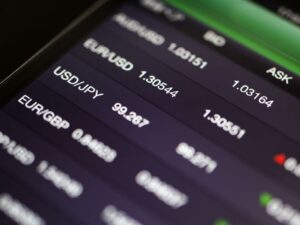
From inflation and interest rates to the stability and performance of governments, exchange rates are constantly being buffeted by a wave of political and economic variables. The relentless nature of these dynamic forces means the value of one currency in relation to another is in a perpetual state of flux. If overlooked, these inevitable market movements have the potential to drive up the cost of your international payments.
It’s not just businesses with an international footprint that are exposed to this currency risk. Whether you’re making regular pension payments to fund your relaxing retirement in France or buying your dream holiday home in Spain, you must shield your international payments from fluctuating exchange rates.
This doesn’t have to be a daunting prospect. You can take control of your international payments using specialist products that help to mitigate the impact of exchange rate volatility on the cost of your cross-border payments – such as a forward contract.
What is a forward contract?
If you need to make international payments, you can benefit from the security of knowing how much these future expenses will cost by using a forward contract. This product allows you to fix a price (a forward rate) based on the current market rate for buying or selling currencies on a specified date up to two years in the future – removing the unpredictability of currency markets
from the equation.
What’s the difference between a spot contract and a forward contract?
A forward contract is an agreement to buy foreign currency at a set price at a future date. A spot contract, on the other hand, enables you to purchase foreign currency at the current market price. If you need to exchange currency immediately, you will use this product to purchase at the spot price in exchange for instant delivery of your funds.
When to use a forward contract
Typical international payment requirements that benefit from securing a forward rate include:
- Purchasing a property overseas
- Purchasing land overseas
- Making regular payments to cover ongoing property service charges
- Making regular payments to cover living costs overseas
- Selling an overseas property
- Making regular pension transfers
- Purchasing other expensive items from overseas, such as a boat or car
How do forward contracts work?
The process of purchasing a property in another country is a good example of how a forward contract can be used to shield your finances from adverse exchange rate movements.
Agreeing to buy a property overseas at one price and paying for it weeks or months later exposes the buyer’s budget to currency risk, due to exchange rate fluctuations. Even small market movements can make a big difference to the price of the property. The easiest and most effective way to protect an overseas property budget from this inherent risk is to secure an exchange rate when the market moves favourably using a forward contract.
Here’s a quick example:
- Having found their dream holiday home in Spain, the Hawes family are concerned that unfavourable exchange rate fluctuations could cause the price of their property to disappear out of reach between paying their deposit and completing – so they seek the services of a currency specialist.
- The protracted nature of the overseas property buying process means they won’t have to transfer the funds required to complete the purchase until an unspecified point in the future.
- When they lay down the deposit the exchange rate is £1=€1.15, meaning their €300,000 property will cost around £260,000.
- Aware that the pound is currently subject to heightened volatility, the dedicated account manager they have been assigned advises them to lock in today’s €1.15 rate for the future payment using a forward contract – allowing them to rest assured that the price of their property is protected from currency fluctuations.
- Fast-forward five months and the Hawes’ are ready to complete on their property, during which time the GBP-EUR rate has plummeted four cents to €1.11. If they hadn’t been proactive and secured their forward rate at €1.15, the property would have cost them £270,000 at the current rate – a whopping £10,000 more.
Pros and cons of a forward contract
Forward contracts are designed to help you control your exchange rate for the future and reduce your risk exposure.
Pros
- Forward contracts shield your finances from currency risk when sending and receiving money overseas.
- By securing an exchange rate now you can plan ahead with confidence because you know how much your future international payments will cost – whatever happens in the currency market.
- Forward contracts are quick and easy to execute with the help of a dedicated account manager at a currency specialist.
Your account manager should explain that currency risk management strategies can sometimes work against you. Once you understand this, you can make an informed decision as to whether a forward contract is right for you.
While the pros of using a forward contract typically outweigh the cons, you must always keep them in mind.
Cons
- Exchange rates fluctuate, meaning they move up as well as down. Having fixed a forward rate you’re committed to it. Therefore, if the currency market moves in your favour you may miss out on potential gains. To mitigate this, your account manager can help you deploy a forward contract for a portion of your foreign exchange requirement, instead of all of it.
- You may be required to pay a small deposit to set up a forward contract.
Find a currency specialist you can trust
Forward contracts empower you to take control of your international payments by locking in a prevailing rate of exchange for a set period of time – insinuating your finances against currency risk. A currency specialist can help you harness this peace of mind.
Find the best deal on your international payments – no matter how large or small – by comparing the world’s leading foreign exchange companies here.
Tom Vicary
Author









